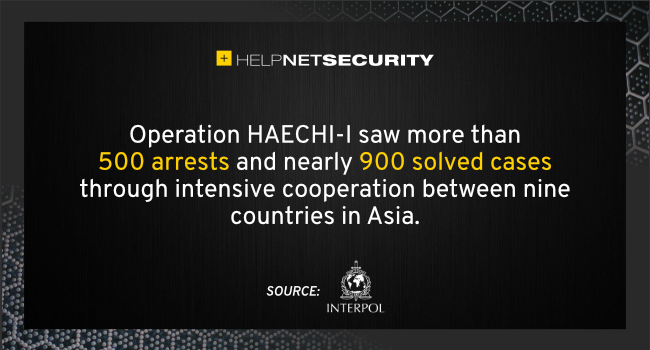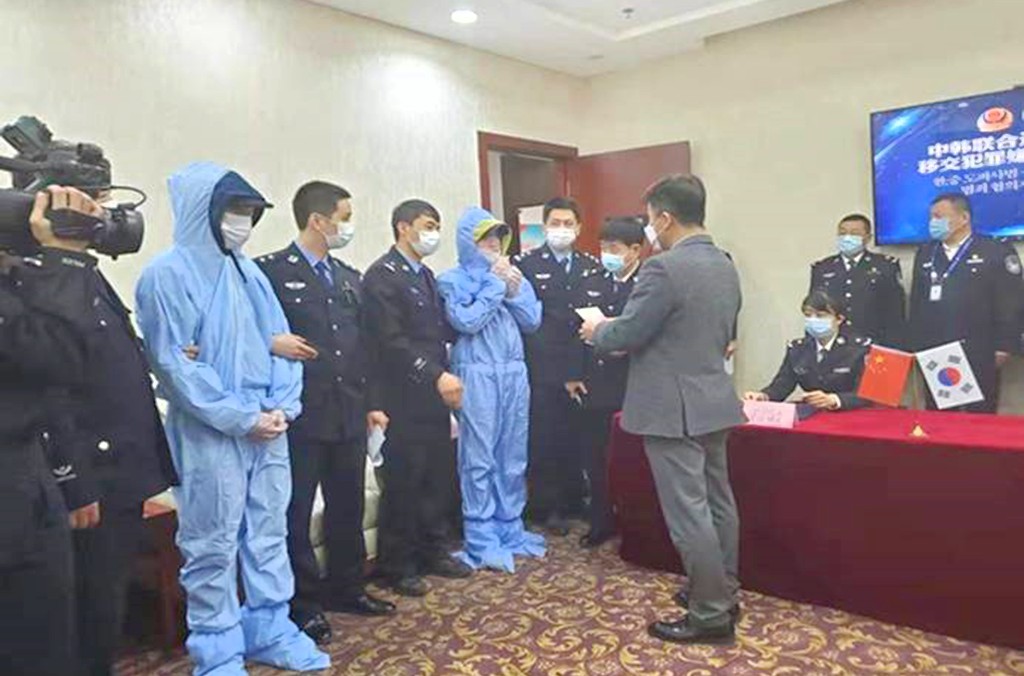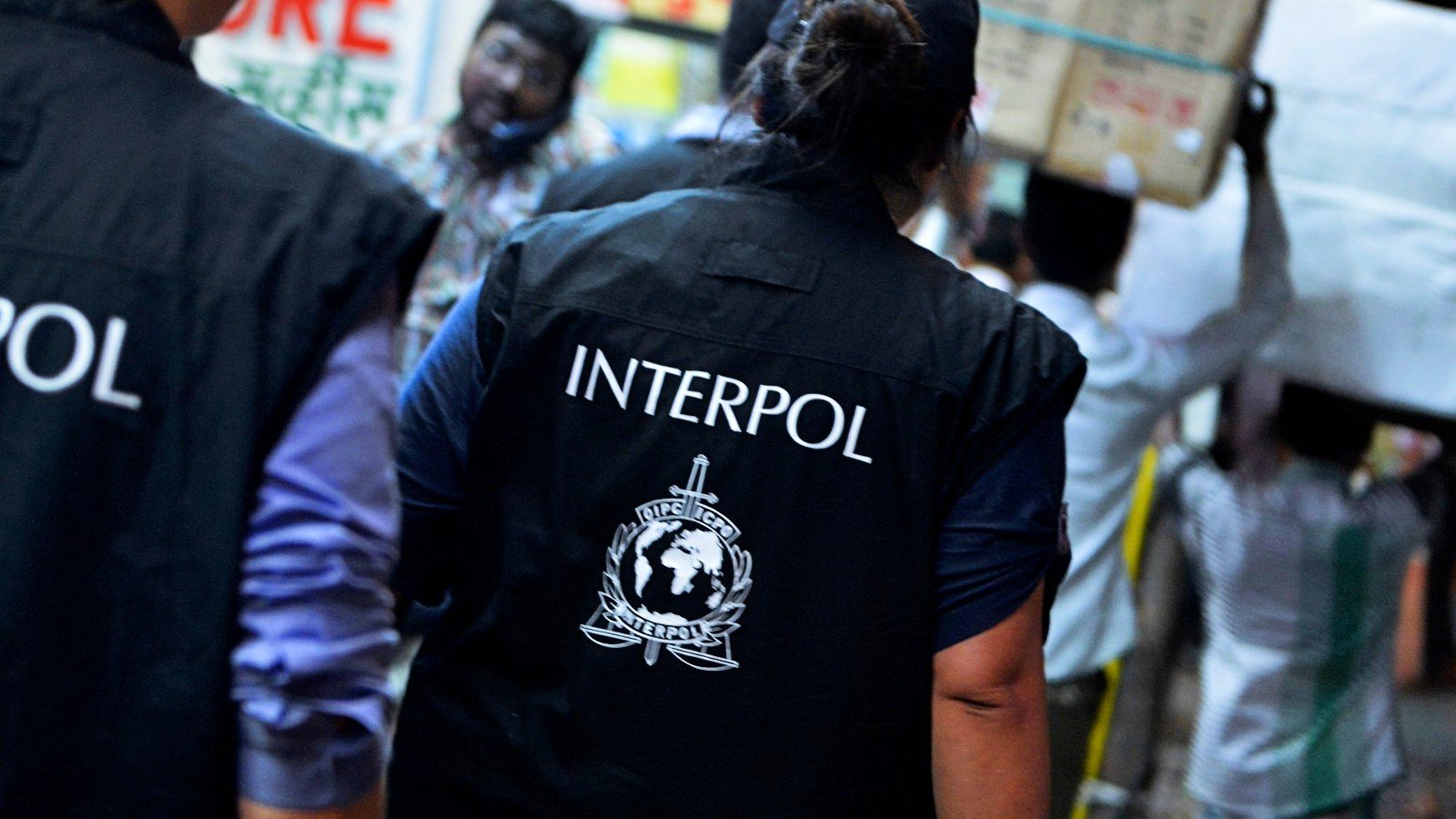Operation HAECHI-I intercepts $83M in online financial crimes
Help Net Security, 02 June 2021
 Amid an exponential increase in online fraud, an INTERPOL-coordinated operation codenamed HAECHI-I mobilized more than 40 specialized law enforcement officers across the Asia Pacific region. Over six months of coordinated intelligence collection and joint operations, police were able to intercept a total of $83 million in illicit funds transferred from victims to the perpetrators of cyber-enabled financial crime.
Amid an exponential increase in online fraud, an INTERPOL-coordinated operation codenamed HAECHI-I mobilized more than 40 specialized law enforcement officers across the Asia Pacific region. Over six months of coordinated intelligence collection and joint operations, police were able to intercept a total of $83 million in illicit funds transferred from victims to the perpetrators of cyber-enabled financial crime.
Officially concluding last week, Operation HAECHI-I focused particularly on five types of online financial crime: investment fraud, romance scams, money laundering associated with illegal online gambling, online sextortion and voice phishing. Continue reading “Article: Operation HAECHI-I intercepts $83M in online financial crimes”

 Focusing on romance scams, online sextortion, investment fraud, voice phishing and money laundering associated with illegal online gambling, police in nine Asian countries arrested more than 500 suspects and seized US$83 million, Interpol said on Thursday.
Focusing on romance scams, online sextortion, investment fraud, voice phishing and money laundering associated with illegal online gambling, police in nine Asian countries arrested more than 500 suspects and seized US$83 million, Interpol said on Thursday. The Interpol (short for International Criminal Police Organisation) has intercepted $83 million belonging to victims of online financial crime from being transferred to the accounts of their attackers.
The Interpol (short for International Criminal Police Organisation) has intercepted $83 million belonging to victims of online financial crime from being transferred to the accounts of their attackers.